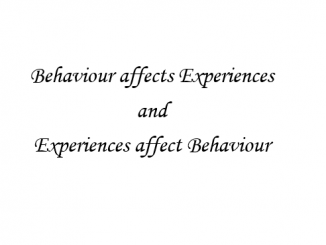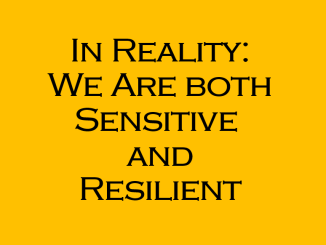Javier Fiz Pérez described emotional dependency as being a personality disorder in which a person with low self-worth is constantly seeking security in other people without trusting in his or her own interior criteria and resources (1).
People utilize emotional dependency (consciously or more often unconsciously) to help fill an emotional void with themselves that they are unable to resolve or make sense of independently.
The phenomenon is found in family, romantic and platonic relationships, although it is significantly more common in intimate relationships.
Leon Seltzer says that while having a certain amount of emotional dependency on your partner is normal, when it’s excessive, it ceases to be healthy—not for you, your partner, nor the relationship generally (2).
What are some of the signs of emotional dependency?
Behaviors and feelings that might signal an emotional dependency on another person may include:
- An irrational or exaggerated fear of losing the person
- A need for constant reassurance about the relationship
- Controlling or ‘safeguarding’ behaviors
- Excessive wants/needs regarding the person’s time, attention, affections
- Statements/feelings around not being good enough to be with the other person
- Acceptance of psychological and physical suffering (so as to not lose the relationship)
- Anxiety/anxieties
- Addictions
- Feelings of inadequacy, of being a fraud, or self-doubt
While people with emotional dependency might commonly ask questions such as:
- “Do you love me?”
- “Am I bothering you?”
- “Do you really want to spend time with me?”
- “How do I look?”
- “Are you sure you still want to be with me?”
- “You don’t want to break up, do you?”
What are the common causes of emotional dependency?
Many experts believe the roots of adult emotional dependency issues are rooted in childhood events, behaviors, and traumas.
Luca Bosurgi believes children who aren’t taught self-reliance before the age of 12 (or before puberty) are much more likely to later exhibit signs of emotional dependency in adulthood.
“The level of success we achieve in our transition to emotional independence is determined by the life-models we learned from our parents”(3).
Some believe that people with their own unresolved emotional issues might be more likely to enter into a relationship with an emotionally dependent person and thus become an ‘enabler’.
Haley Pace explains that we chase people where we can repeat relationship roles we’re accustomed to.
“This is all lovely if you had a spotless childhood and possess a healthy psychology. For many people, though, love has taken a warped definition and they will pursue individuals that play into their damaged psychology”(4).
What does it do to relationships?
Interestingly, despite the emotionally dependent person often seemingly being intent on not losing the other person, the emotional dependency can ultimately increase the likelihood that the relationship will end.
An article on Exploring Your Mind says emotional dependence often goes hand in hand with jealous behavior.
“By the use of manipulation or possession of the beloved person, we wear the other person down. The other person usually ends the relationship, and the end result is that the irrational belief of dependency comes true i.e. without you I am nothing.”(5)
What steps can you take to ease emotional dependency?
The good news is emotional dependency is a phenomenon that can be overcome and often is, allowing both people in the relationship to live a happier and more stable life.
Some of the strategies that can be helpful in overcoming emotional dependency can include:
- Recognizing that the dynamics of the relationship may not be healthy.
- Recognizing times when ‘clingy’ behavior is witnessed.
- Taking ownership of own needs and happiness.
- Implementing self-care strategies.
- Seeking strategies and support through services such as a counsellor.
- Finding an outlet, interest, or hobby that you enjoy outside of the relationship.
- Spending plenty of time with family and friends.
While Wise Mushroom says letting go of overly dependent ways of thinking and adopting a willingness to broaden your horizons through a mix of relaxation, exploration, self-expression, self-compassion, self-understanding, self-care and assertiveness are great steps to take (6).
References:
- Perez. J. (2017) Are you emotionally dependent? Here’s what you need to know. Retrieved from: https://aleteia.org/2017/11/25/are-you-emotionally-dependent-it-goes-back-to-your-childhood/
- Seltzer. L (2017) Psychology Today. Are You Too Emotionally Dependent on Your Partner? Retrieved from: https://www.psychologytoday.com/au/blog/evolution-the-self/201904/are-you-too-emotionally-dependent-your-partner
- Bosurgi. L. (nd). Adult Emotional Dependency (AED). Retrieved from: https://lucabosurgi.com/adult-emotional-dependency-aed/
- Pace. H. (2018). P.S. I Love You. To the Women Who Repeatedly Attract Broken, Emotionally Unavailable or Addicted Men. Retrieved from: https://psiloveyou.xyz/to-the-women-who-repeatedly-attract-broken-emotionally-unavailable-or-addicted-men-1d3fccc22da8
- No Author. (2018) Exploring Your Mind. Codependency and How it Ruins Relationships and our Self-Esteem. Retrieved from: https://exploringyourmind.com/codependency-ruins-relationships-self-esteem/
- No Author. (nd). Wise Mushroom. How to overcome emotional dependency. Retrieved from: http://www.wisemushroom.org/how-to-overcome-emotional-dependency/?site_agreement=yes



